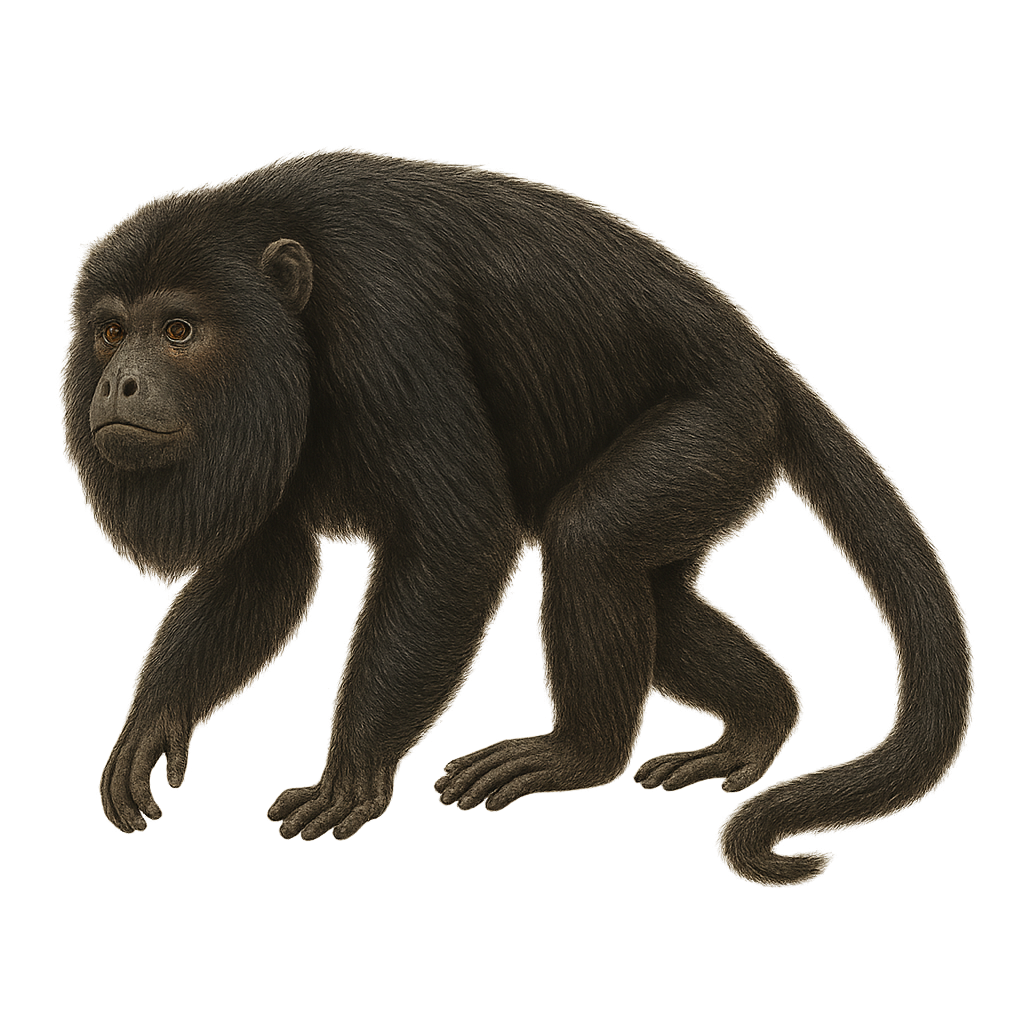Your wildlife photography guide.
Explore the black howler in detail, study its behavior, prepare your shots.
Where to observe and photograph the black howler in the wild
Learn where and when to spot the black howler in the wild, how to identify the species based on distinctive features, and what natural environments it inhabits. The WildlifePhotographer app offers tailored photography tips that reflect the black howler’s behavior, helping you capture better wildlife images. Explore the full species profile for key information including description, habitat, active periods, and approach techniques.
Black Howler
Scientific name: Alouatta caraya

IUCN Status: Least Concern
Family: ATELIDAE
Group: Mammals
Sensitivity to human approach: Suspicious
Minimum approach distance: 10 m
Rut period: October to December
Gestation: 180-190 jours
Births: April to June
Habitat:
Tropical forests, subtropical forests, savannas
Activity period :
Primarily active during the day, with peak activity in the morning and late afternoon.
Identification and description:
The Alouatta caraya, commonly known as the black howler, is a primate of the Atelidae family. This monkey is easily recognizable by its black fur in males and golden brown in females. It primarily inhabits the tropical and subtropical forests of South America, notably in Brazil, Argentina, Paraguay, and Bolivia. Black howlers are famous for their powerful calls, audible over several kilometers, used to mark their territory. They live in social groups consisting of several individuals and primarily feed on leaves, fruits, and flowers. Their arboreal lifestyle makes them particularly agile in trees, although they spend much of their time resting to digest their fiber-rich diet.
Recommended lens:
400 mm – adjust based on distance, desired framing (portrait or habitat), and approach conditions.
Photography tips:
To photograph the Alouatta caraya, it is advisable to use a telephoto lens of at least 400mm to capture detailed images from a distance without disturbing the animal. Since black howlers are diurnal, it is best to photograph them early in the morning or late in the afternoon when the light is soft and flattering. Look for angles that highlight their social behavior and interaction with their environment. Be patient and discreet to obtain natural and authentic shots.
From knowledge to field practice
A species profile helps you understand an animal. In the field, the challenge is often different. Remembering your own observations.
The WildlifePhotographer app allows you to:
• record your personal observations
• note locations, dates, and behaviors
• revisit your field references over time
• build a private and long-term field logbook
The app does not provide observation locations.
It helps you organize what you actually observe, with respect for wildlife.

